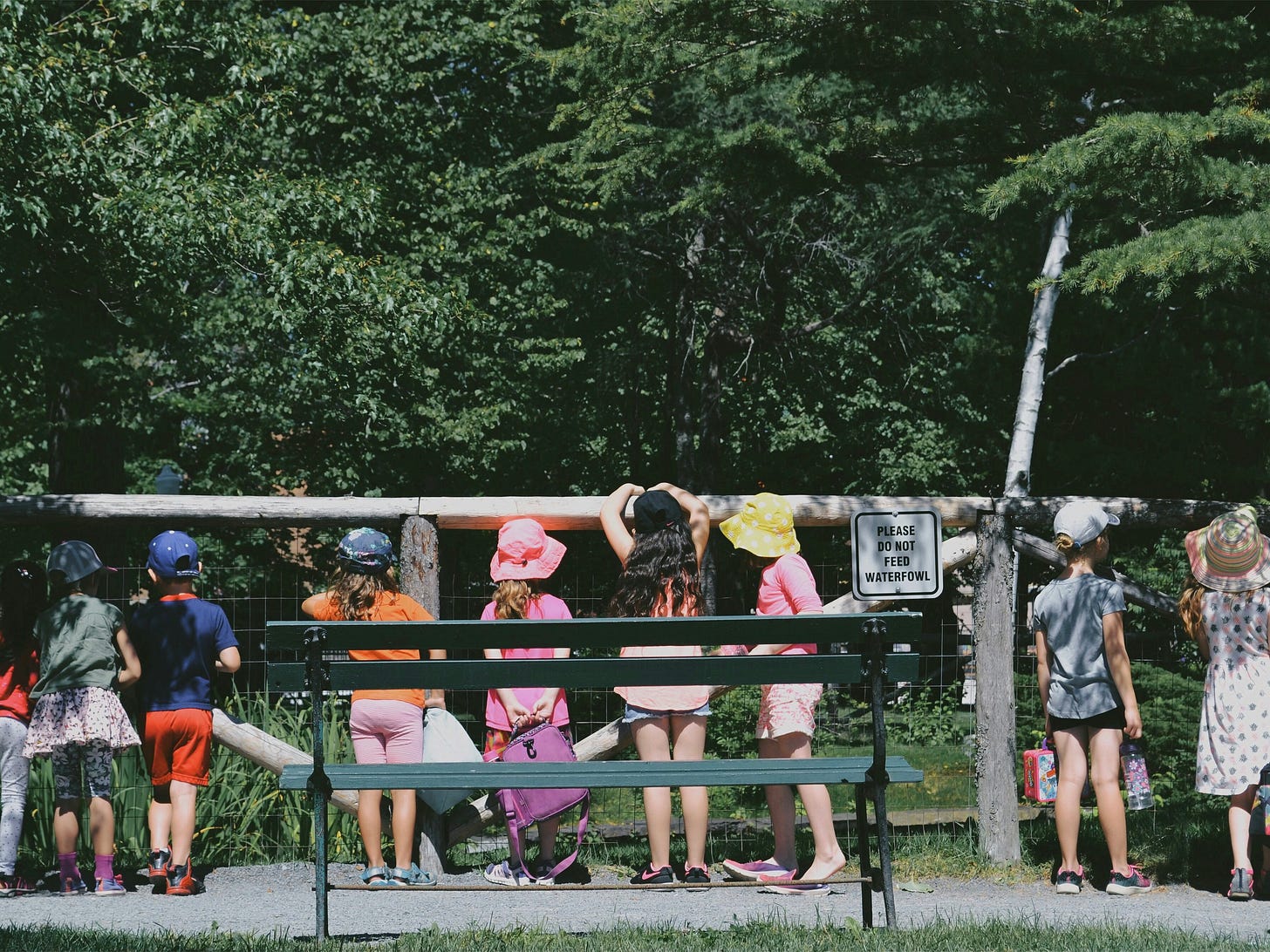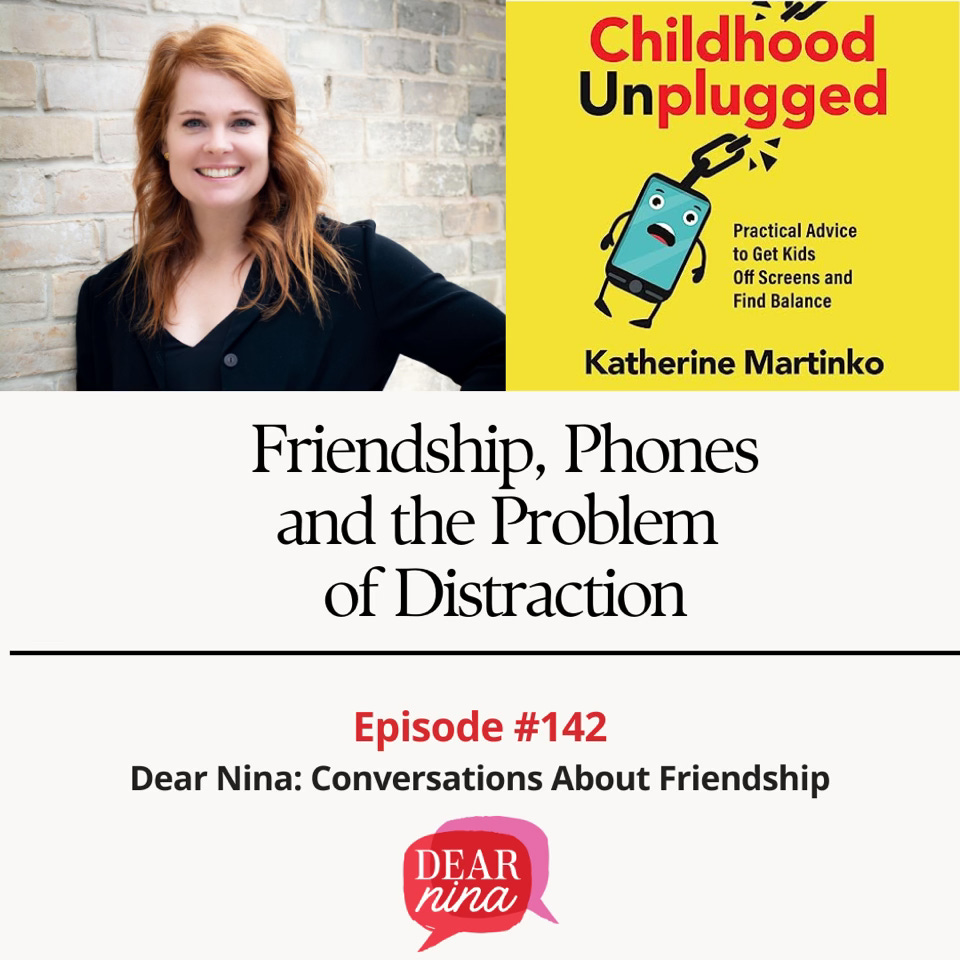Note: There is no audio version of this post because I left my microphone at home! I’m writing from a hotel room in Mount Vernon, Washington, after giving a talk near Camano Island last night.
A reader emailed me earlier this month, asking a question that I’m sure many families have wondered:
I thought of you this weekend as I despaired over the state of boyhood in America. My son is almost 10. This past weekend, we went on a Cub Scout trip, and I couldn't help but notice that most of what the boys were talking about was video games, WHILE WE WERE CAMPING! This is not the first time I've noticed this, but it was especially sad, considering all the other things they could have been talking about on this trip.
I long for my son to meet some other kids who have equally limited screen time, who are interested in the outdoors and all the other things my son likes—that are not video games. He's got a few buddies who still want to participate in imaginative free play, but it's dwindling day by day.
So, my question is: How do the parents like you and I find each other and get our kids together?
I wish there were an easy answer to this. Finding our “tribe” is an ongoing challenge for all of us humans, whether we are looking for a life partner or a best friend or a faith community or the right career connections. There is no clear-cut path to belonging, and it can take years and countless dead-ends before you find yourself where you want to be, if you ever do.
When it comes to finding kids who are being raised with a similar “digital minimalist” philosophy, I think you can approach it a few different ways. You can seek out others actively, through formal groups; you can proclaim your stance in order to attract others; or you can live your life quietly and persistently, trusting that the example you set will have a lasting positive influence on others.
Join Groups
Active seeking could take the form of joining groups, such as the US chapter of Smartphone Free Childhood, which organizes WhatsApp groups for likeminded parents to communicate with each other. The sign-up form asks if you would like to be connected with others in your state. You could look for local chapters of other organizations, like Wait Until 8th, MAMA (Mothers Against Media Addiction), IRL NY, and Unplugged Canada.
On a more local level, talk to your kids’ teachers and school administrators about your stance on screens and ask if they know of any other parents within the school who take the same approach. Ask the parent council if anyone else is limiting their kid’s screen time. Talk to youth leaders, counsellors, pastors, and friends, of course.
Ask anyone who is a “social aggregator” of sorts, who is well connected within the community. Some people are better than others at having their finger on the pulse of who’s doing what; they might be able to make helpful recommendations and connections.
Become a Leader
Proclaiming your stance could involve becoming the community leader and aggregator that is lacking wherever you live. This may not be a role you want to take on, but maybe you’ll find it is fulfilling and exciting to get involved in a movement that means so much to you. Go speak to the parent council, to play groups, to churches, to coaches of your kids’ sports teams.
Organize the kinds of events you want your kid to have. Make a post on social media (a good use of its networking power) to organize a weekly free play session at a local park, where parents can send their kids and know that others will be there to play with them. Send out an announcement through the school.
Advocate for closing a part of your neighbourhood street for weekly play sessions, a concept pushed by a UK charity called Playing Out. Invite kids over for outdoor play at your house, maybe on Friday afternoons or Sunday mornings; try to make it a regular standing invitation. Let it be known that these are screen-free hangouts; some kids might balk at it, others will flock to it. Most parents will be immensely grateful that someone else is doing the dirty work of saying no to the kids.
Go to place where you’re more likely to encounter likeminded families—campgrounds, parks, beaches, hiking trails, skating rinks, swimming pools, live theatres, festivals, and more. Get involved with the Child and Nature Network.
Talk to your own kids about conversation etiquette and explain that it is generally considered rude to talk about something that excludes people in a group. Give them some tools and phrases for shifting group discussions away from video games toward something that is less screen-centric, such as, “Hey, guys, let’s not talk about games right now. Can we talk about [insert whatever] instead?” Little boys in particular love superheroes and superhero powers, silly humour, bodily functions (sigh), animal facts, what they’d do with a million dollars, wild physical feats, the best and worst parts of their days, etc.
Set an Example
That leads to my final point, which is that, ultimately, we must simply live our lives according to whatever philosophy feels right to us and then hope that doing so will lead us to others who can help support and make us feel less lonely. You never know what effect your unconventional lifestyle choice might have on others.
I think about this when my kids’ friends come over and see how differently we live. There’s no TV in the living room, no gaming consoles, no iPads or smartphones in the kids’ hands. There’s a landline and a desktop computer where my kids “text” their friends. Instead, our house is full of books and board games and musical instruments and art. There’s always food on the stove and music blasting. There are a dozen things to do outside—a trampoline, a slack line, a digging pit, a basketball net in the driveway, a squat rack and pull-up bar in the garage.
Sometimes, young visitors are vocal in their surprise at how low-tech the house is (and indignant at being asked to stay off their own devices when they come over); others say nothing, but I’m sure they’re observing and soaking it all in. I suspect that a few will remember us for years to come as that weird family without screens at home. At the very least, seeing it will show them that there is another way to live, that just because everyone else is doing something does not mean you have to, too.
Don’t shy away from talking about your approach to phones and screens with other parents. It’s a fine balance. You don’t want to shove it down people’s throats (no one likes someone who’s preachy about their parenting), but you don’t have to hide it either. Don’t be embarrassed or ashamed by it; you have the right to raise your kids the way you want.
There is real pressure to conform and to validate others’ choices and justifications to give their kids smartphones at a shockingly young age, but you don’t have to agree with things you don’t agree with. It’s perfectly acceptable to have a differing opinion and not to be afraid to voice it in a kind, nonjudgmental, and matter-of-fact way. You never know when hearing your words might empower another parent to delay smartphone ownership and social media.
I don’t think there is a straightforward answer to this question, but keep in mind that it only takes around 30% of a population changing its mind to shift a societal norm. By embracing a digital minimalist approach with your own kids, you’re doing your part to help reach that tipping point and make it easier for other (perhaps less intrepid) parents to follow suit in the future.
You Might Also Like:
Recent Podcasts:
In case you missed it, I had a lovely conversation several weeks ago with Nina Badzin on her podcast, Dear Nina: Conversations About Friendship. Please have a listen here on YouTube or on Spotify or on Apple Podcasts.







I've been doing this since my kids were in preschool. Once a week, I pick a place that we are going to go whether anyone joins us or not. In preschool, it was a playground. Another year, it was a pool. Now my kids are 6 and 8, and we can venture further and stay longer. I pick a state park or an outdoorsy location with woods and water.
Each week, I email my list and say: "Playground meet up this week is on Thursday at Smith Park from 10-12". Give specific time frame and include a link to the map. The key is to make it easy.
The day before the meet up, I email the whole list again and I say: "This week I have: Parker Family, Smith Family, Johnson Family. Let me know if I missed you.' This reminds people to come and we usually get another family or two who hadn't already committed.
My email list is inclusive -- in preschool it was the whole class. Now it's ever evolving as I talk to people and share that I do this. The email always says -- "Open Invitation! Bring a friend!" I always include a line that says: "If you want off this list, let me know."
Make it regular, make it low key, make it free, make it something you're going to do anyway. No pressure, join us if you can. People will show up.
Side note - I am a complete introvert. You can do this if you're an introvert! You don't have to be a super outgoing person! You just have to be a person willing to identify a meeting point and send out a message.
Interesting--my parents live on Camano Island. Were you by chance speaking in Stanwood? My cousin's husband is the mayor there and I would be happy to know if there are like-minded parents and resources there his family might be able to tap into.